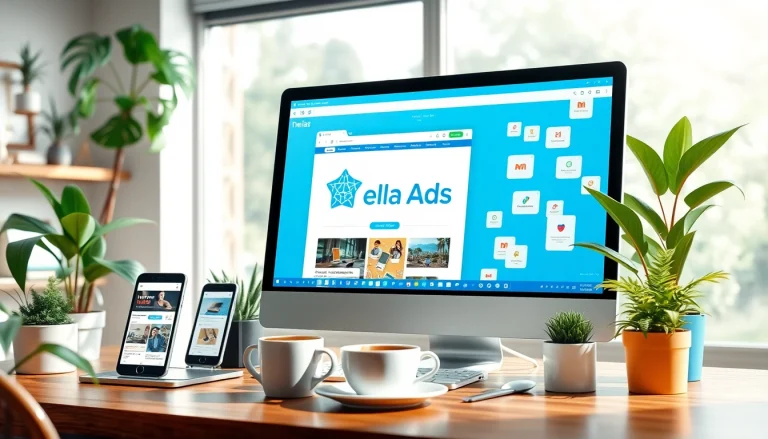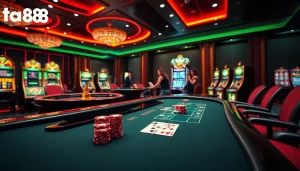Understanding the Spa Ads Landscape in 2025
As the wellness industry continues to flourish, the significance of effective spa advertising cannot be overstated. In 2025, the spa ads landscape is shaping up with advanced marketing strategies that not only attract new clients but also build lasting relationships with existing ones. This dynamic environment requires spa owners and marketers to stay abreast of current trends, understand their target demographics, and navigate the challenges unique to this sector. For those looking to enhance their marketing efforts, Spa Ads provide valuable insights into how to efficiently reach and engage clients.
Current Trends Influencing Spa Advertising
Several trends are currently influencing the way spas approach advertising. These include:
- Increased Digital Presence: Digital platforms such as social media, email newsletters, and websites are becoming crucial for spa promotion. Consumers are increasingly seeking services online, making digital advertising paramount.
- Personalization: Tailoring ads to meet specific client needs is more important than ever. Personalized content resonates more deeply with potential clients, driving engagement and bookings.
- Sustainability Focus: Eco-friendly practices are becoming a selling point in spa advertising, appealing to environmentally conscious consumers.
Key Demographics for Spa Ads
Identifying and understanding the demographics that frequent spa services is critical for effective advertising. The primary demographics include:
- Millennials and Gen Z: These younger consumers often seek wellness and self-care options, making them prime targets for spa ads.
- Women Aged 30-55: This demographic continues to dominate the spa industry, often seeking relaxation and anti-aging treatments.
- Men’s Grooming: An emerging market, men are increasingly interested in spa services for grooming and wellness, providing a new audience for targeted ads.
Challenges in the Spa Advertising Market
Despite the promising trends, spa advertisers face several challenges:
- Market Saturation: The spa industry is highly competitive, making it difficult for individual spas to stand out.
- Trust Issues: Consumers are wary of misleading claims and demand transparency regarding treatments and results.
- Budget Constraints: Many spas operate with limited marketing budgets, making effective ad spending crucial.
Creative Strategies for Effective Spa Ads
Utilizing Social Media for Spa Ads
Social media is a powerful tool for spa advertising, offering platforms for visual storytelling and direct engagement with customers. Consider the following strategies:
- Visual Content: High-quality images and videos showcasing treatments can captivate potential clients.
- Client Testimonials: Sharing positive feedback and before-and-after photos builds trust and authenticity.
- Promotions and Giveaways: Engaging users through contests or special promotions can increase visibility and draw in new clients.
Designing Eye-Catching Spa Ads
The design of spa ads plays a crucial role in capturing potential clients’ attention. Here are some tips for creating eye-catching ads:
- Consistent Branding: Your spa’s branding should be consistent across all platforms to create a cohesive image.
- Clear Messaging: Use concise, compelling language that succinctly conveys the benefits of your services.
- Color Psychology: Utilize colors that evoke relaxation and luxury, such as soft blues and greens.
Case Studies: Successful Spa Ads Campaigns
Learning from successful campaigns can provide valuable insights. Here are three case studies:
- Wellness Spa: This spa utilized a targeted Facebook ad campaign focusing on stress relief, resulting in a 40% increase in bookings.
- Beauty Retreat: Through Instagram influencer partnerships, this spa expanded its reach substantially, generating a 60% rise in new clients.
- Urban Spa: Employing Google Ads with locally targeted keywords helped this spa increase foot traffic by 30% within three months.
Measuring the Success of Your Spa Ads
Key Performance Indicators for Spa Advertising
To assess the effectiveness of your spa ads, it’s essential to track specific metrics:
- Return on Investment (ROI): Calculate the revenue generated from ads against the cost of the campaigns.
- Conversion Rates: Measure how many viewers took action after seeing your ads, such as booking an appointment.
- Engagement Metrics: Monitor likes, shares, comments, and clicks to understand audience engagement.
Using Analytics to Optimize Spa Ads
Analytics tools can provide insights into ad performance, enabling you to optimize your strategy:
- Split Testing: Experiment with different ad variations to see which performs better.
- User Behavior Analysis: Track how users interact with your website after clicking on an ad to identify any bottlenecks in the booking process.
Adjusting Strategies Based on Results
Flexibility is key in advertising. Based on your findings, be prepared to adapt:
- Budget Reallocation: Shift funds from underperforming ads to those that show promise.
- Content Refresh: Regularly update your ad content to keep it fresh and engaging.
Legal Considerations for Spa Ads
Compliance in Advertising Treatments
Different regions have various regulations governing health and beauty advertising. It is crucial to ensure compliance to avoid legal issues:
- Truthful Claims: Ensure your advertisements accurately represent the services and results.
- Medical Supervision: If advertising medical treatments, clearly state if procedures are supervised by licensed professionals.
Truth in Advertising: Avoiding Misleading Claims
Transparency is key in building trust with consumers. Here are some best practices:
- Avoid Exaggeration: Do not overstate results; realistic expectations lead to satisfied customers.
- Client Consent: Always obtain permission before using client photos or testimonials in your ads.
Understanding Local Regulations for Spa Ads
Each local area may have distinct regulations regarding advertising in the spa industry. Familiarize yourself with:
- Advertising Restrictions: Be aware of any restrictions placed on advertising medical or cosmetic procedures.
- Disclosure Requirements: Understand the necessary disclosures required in your ads, especially for promotions and services.
The Future of Spa Ads: Innovations and Predictions
Emerging Technologies in Spa Advertising
As technology evolves, so too do advertising opportunities in the spa industry:
- Augmented Reality: AR allows potential clients to visualize treatments or services before committing.
- Chatbots: Integrating AI-powered chatbots on your website can enhance customer interaction and streamline booking processes.
Personalization Trends for Spa Ads
The demand for personalized marketing continues to rise. Use data analytics to tailor ads that speak directly to individual client preferences:
- Behavioral Targeting: Utilize data to target ads based on user behavior and preferences.
- Customized Offers: Create unique offers based on previous client interactions and bookings.
Preparing for the Future: What to Expect in Spa Advertising
Looking ahead, spa advertising will continue to adapt to changing consumer behaviors and technological advancements:
- Increased Automation: More marketing processes will become automated, making it easier to reach clients efficiently.
- Greater Emphasis on Wellness: As wellness becomes a priority for many, advertising will shift towards holistic health offerings.













